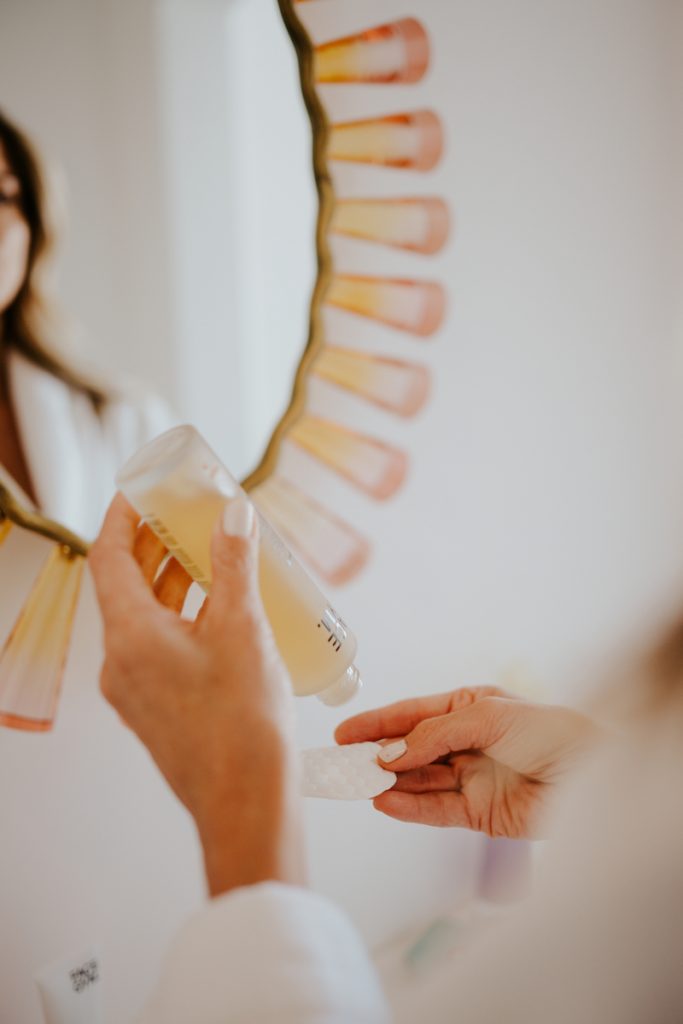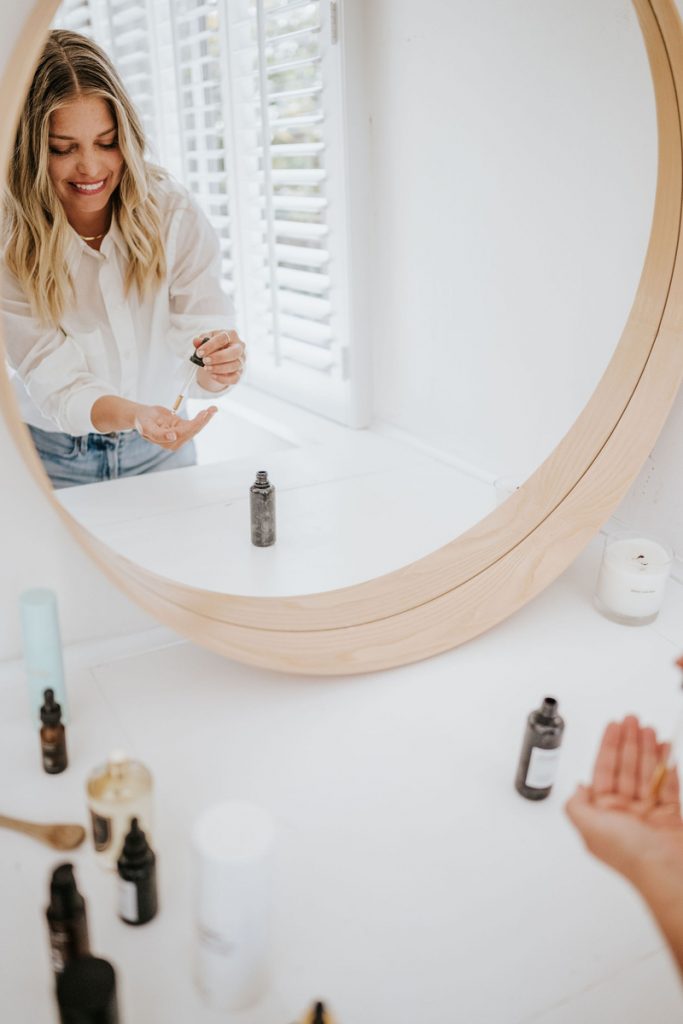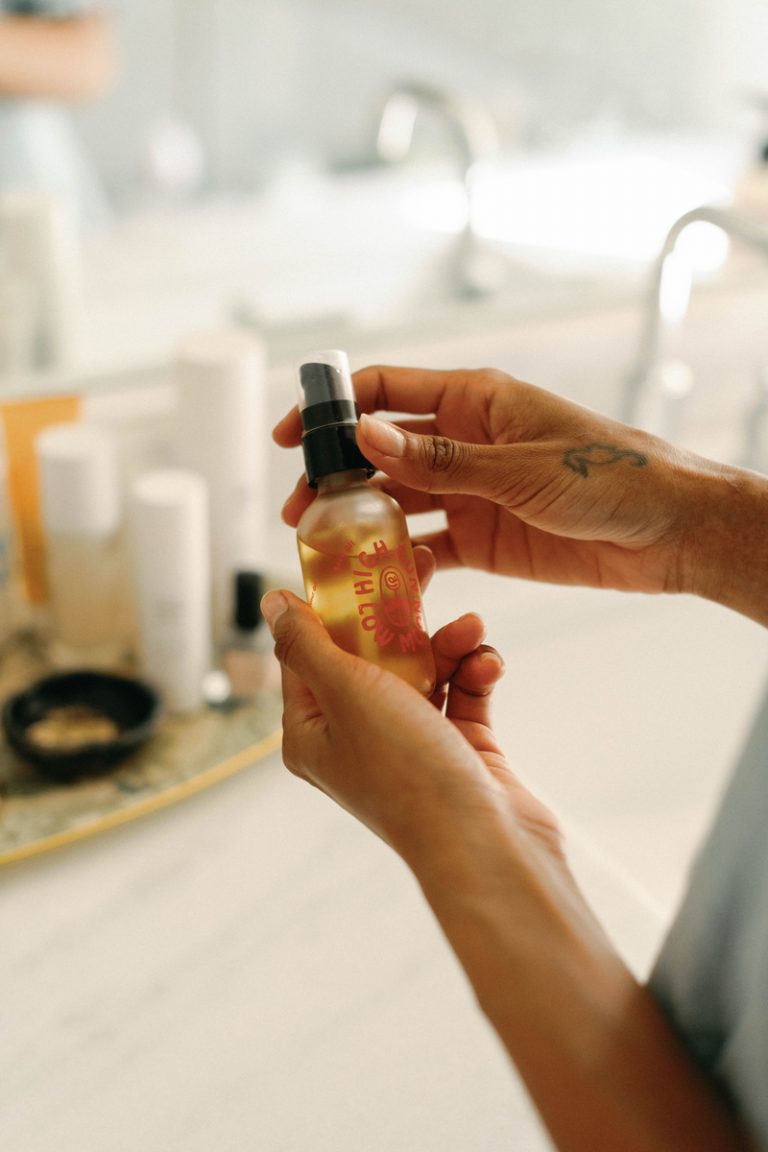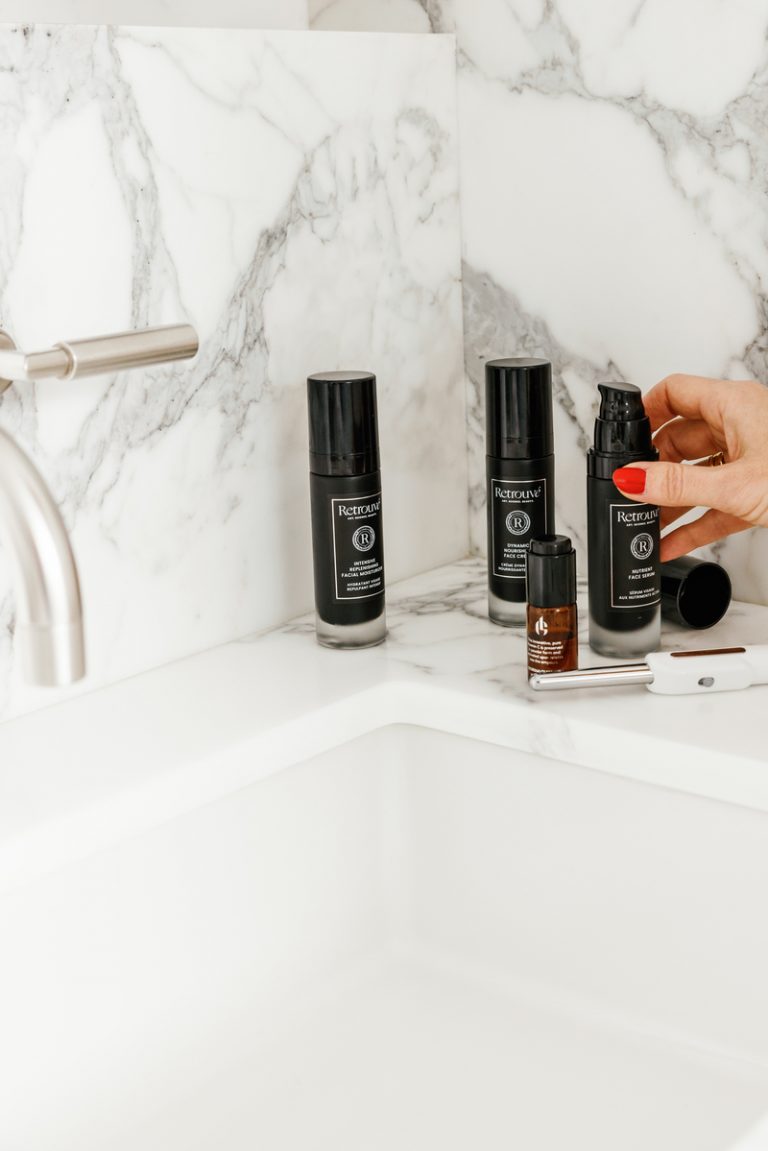How to *Really* Use Hyaluronic Acid: Dos and Don’ts You Need to Know
Your future looks glowy. The post How to *Really* Use Hyaluronic Acid: Dos and Don’ts You Need to Know appeared first on Camille Styles.

What if I told you there was a magical skincare potion that could naturally infuse moisture and bounce into your skin, soften wrinkles, and give you a dewy glow—no visit to the derm required? That’s the magic of hyaluronic acid. But as hyped up as this buzzy ingredient is, it can’t work its wonders without proper application. That’s why today, we’re diving into all the dos and don’ts of how to use hyaluronic acid for healthy, glowy skin.
It’s no secret that hyaluronic has been everywhere these past few years. I’ve seen it popping up in everything from cleaners to oils to masks to oral beauty supplements. All these different formulations got me wondering whether all hyaluronic acid treatments were alike, or if (as I hypothesized) certain ways of getting the good stuff were better than others. And so my research began. Turns out, my hunch was right.
Featured image from our interview with Iskra Lawrence by Michelle Nash.
1 of 11

Subscribe
Sleep well.
Sign up to receive a FREE E-BOOK with 12 steps to your best sleep ever.
Thanks for Signing Up!
Oops!
Looks like you’re already signed up or your email address is invalid.
Oops!
Looks like you unsubscribed before click here to resubscribe.
Expert Secrets Behind How to Use Hyaluronic Acid
How, when, and in what formulation… these things really do matter when it comes to getting your daily dose of HA. So, I connected with the team at Olay to set the story straight. (When it comes to what’s right and what’s wrong, think minimum effort, max results.) Scroll on for the secrets to your most beautiful, moisturized skin…
2 of 11
What is hyaluronic acid?
First, a quick lesson on what makes hyaluronic acid the wonder ingredient that it is. HA acts as a “humectant.” This means that it works like a sponge to help the skin retain water and plump it up. We actually have natural levels of hyaluronic acid in our skin, but as we age, they slowly deplete. This leads to wrinkles and a loss of bounce in the skin.
HA has the incredible capacity to attract and hold onto 1000x its weight in moisture. And herein lies the key. Hyaluronic acid should be used either in a moisturizer or in conjunction with your moisturizing products. When you add moisture to the skin, you’re giving the HA added water to absorb and hold onto, rather than pulling moisture out of dry skin.
Instead, HA brings moisture to the surface of the skin and holds it there, keeping the skin continually moisturized throughout the day. To test this in action, I’ve been experimenting with my favorite hyaluronic acid products over the past few years (see below). There’s no doubt that my skin is visibly dewier and smoother, with increased elasticity. And it stays that way all day without ever getting greasy.
3 of 11
Common Hyaluronic Acid Mistakes
These are a few of the most common mistakes made when incorporating hyaluronic acid into a skincare routine—and how to fix them so this super ingredient can do its job right.
Mistake 1: Using Hyaluronic Acid Without Moisturizer
Since HA can hold a lot of water, just think about it: it needs moisture to work. If the skin is already dry and HA is applied in a formula that doesn’t add moisture (think cleanser, toner, or light serum), it will pull moisture from wherever it can, like from deep within your skin, where it can then evaporate into the air if not sealed properly.
On the other hand, when HA is formulated within a deeply hydrating moisturizer (or again, a moisturizer is used after), that emollient will penetrate and lock moisture into the skin, which is, of course, the goal.
4 of 11
Mistake 2: Not Using Hyaluronic Acid as the Final Step in Skincare
With all the fancy HA formulations on the market now (serums, pills, masks, and so much more), it can be tempting to adopt a “more the merrier” mentality. However, some research has shown that overuse of hyaluronic acid can result in redness and inflammation. The takeaway: Choose the one step where you’ll get the biggest bang for your buck. Since we’ve established that HA needs moisture-packed padding for optimal effectiveness, locking it in (within a rich, well-formulated moisturizer) as the final step in your AM and PM skincare routine will leave you with hours of smooth, bouncy skin.
5 of 11
Mistake 3: Applying Hyaluronic Acid To Dry Skin
When HA is applied to dry skin in dry conditions, it will naturally pull moisture from wherever it can. So, if there’s low humidity in the air, it draws moisture from the deeper layers of skin and brings it to the surface, where it then evaporates and leaves skin drier than it was in the first place.
But when you start your HA skincare routine with a damp face, it has a reserve of moisture to pull from, plain and simple. Understanding this has been a game changer that’s resulted in my healthiest, most moisturized skin ever.
So, prepare yourself for my new favorite new skincare hack. Each morning and evening, I mist my face with water, then apply my chosen hyaluronic acid serum products, then mist again.
When hyaluronic acid comes into contact with water, my skin will end up hydrated and healthy. In the morning, I have a smooth canvas for my makeup—none of that “settling into fine lines” thing happening around my eyes these days.
6 of 11
The Best Hyaluronic Acid Products to Get Started
Every product is curated with care by our editors. If you buy something through our links, we may earn a small commission at no cost to you.
Olay Regenerist Micro-Sculpting Cream Moisturizer
Olay Regenerist Micro-Sculpting Cream contains ultra-high concentrations of HA, smoothing out fine lines and transforming skin upon first use. It’s also infused with vitamin B3 for skin cell turnover, plus amino-peptides and antioxidants for ultimate health and hydration. I’ve been using it as the final step in my morning and night skincare routine for the past couple of months, and it’s become a non-negotiable in my lineup. After all, hydrated skin is happy skin!
Summer Fridays Dream Oasis
Have you obsessed over Summer Fridays since the brand launched its hero product, the Jet Lag Mask? Then you know it’s all about hydrating skin as much as possible. This jelly serum adds major moisture without weighing the skin down. Formulated with glycerin, hyaluronic acid, and squalane, Dream Oasis is a go-to choice for any skin type. That’s right—sensitive, oily, and acne-prone included.
VERSED Moisture Maker Hyaluronic Serum
Our Managing Editor, Isabelle, is obsessed with this hyaluronic serum (read her full review of VERSED’s entire line here). She swears by the following routine for visibly plumper skin after the first use: “After cleansing, I patted my skin almost dry—this is key—before applying two drops of the serum to my face, neck, and chest. I waited a minute or so before applying my face oil and moisturizer.”
Dime Hyaluronic Acid Serum
For some, it can be a guessing game as to which hyaluronic acid serum will support your skin best. However, from polling girlfriends, co-workers, and social media acquaintances, it’s clear that this is one of the best in terms of delivering hydration minus any irritation. And because hyaluronic acid has been known to act as a carrier for other ingredients, by using this product in tandem with other skincare heavy hitters (your go-to moisturizer and other facial oils), even the driest skin will enjoy a little extra boost and bounce.
Alder New York Balancing Serum
I’m obsessed with every single last product this vegan skincare line puts out. But the Balancing Serum? It might be my all-time fave. I consider it a morning and night essential and a go-to for reducing redness and evening my skin texture. What’s more, because my skin leans on the oilier side, I can rely on this serum to balance it out. Plus, each of the brand’s products is formulated for all ages, genders, and ethnicities. So everyone can enjoy their healthiest skin.
This post was originally published on September 3, 2020, and has since been updated.

 ValVades
ValVades 






























